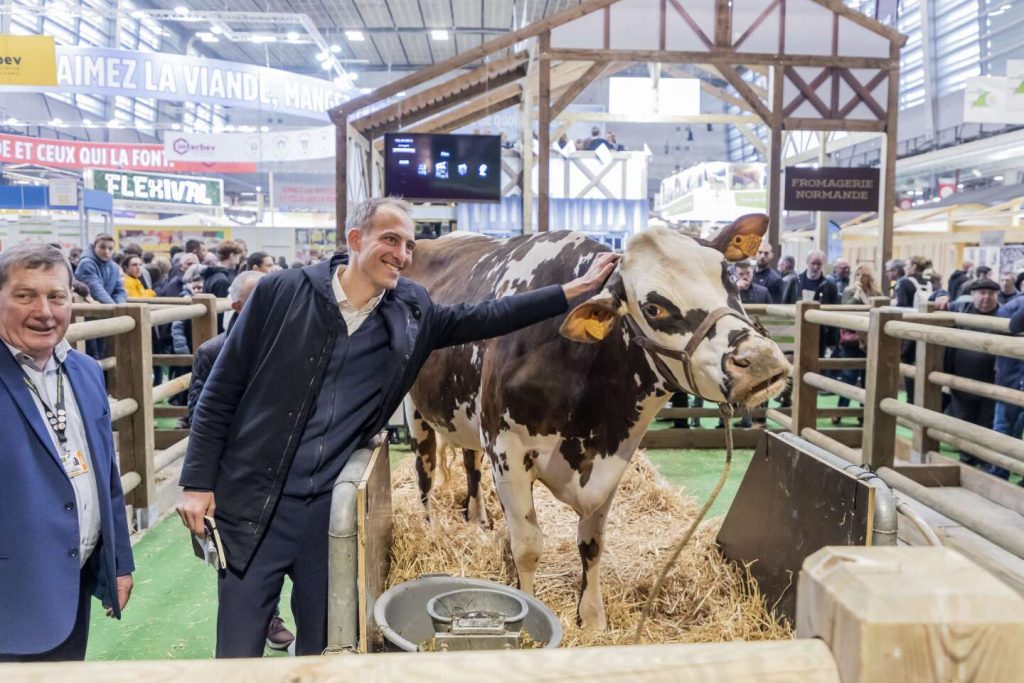Raphaël Glucksmann, the head of the Socialist Party for the European election on June 9, was pictured with a cow, the mascot of the Agricultural Fair, in Paris on February 25, 2024. This event came after a heated exchange of letters between Glucksmann and François Ruffin, the deputy of La France insoumise, in January. Ruffin criticized Glucksmann for being disconnected from the negative impact of the European Union on industries, citing examples of companies affected by globalization. Glucksmann, in response, accused Ruffin of making inaccurate statements and distortions. The tension between the two continued when Glucksmann visited an industrial plant in Belgium, showcasing a successful recovery story in the face of economic challenges.
On March 26, Raphaël Glucksmann traveled to Belgium on a Thalys train at the invitation of Paul Magnette, the president of the Belgian francophone Socialist Party. They visited Wallglass, a company that had recently been revived by Pepe Strazzante, a former worker and union activist. The company had successfully reorganized and refocused its business towards high-end automotive clients, even rehiring staff. Wallglass was now considering diversifying into the assembly of solar panels. Glucksmann, taking notes during the visit, raised concerns about the competitiveness of European industries against Chinese manufacturers in the market. He also highlighted the role of European regulations in promoting clean energy initiatives such as the “Green Pact.”
Glucksmann further explored the production lines at Wallglass and admired the company’s commitment to developing and manufacturing their machinery in-house, to maintain a competitive edge. He expressed his ambition to bring back the entire value chain of industries to Europe, such as the production of polysilicon, a key material used in solar panels that is currently imported from China. Glucksmann emphasized the importance of supporting European industries through policies that prioritize clean energy initiatives and sustainable development. He acknowledged the challenges ahead but assured the company that social democrats would stand by them, depending on the outcomes of the upcoming elections.
The visit to Wallglass highlighted the potential for European industries to recover and thrive through innovation, local manufacturing, and strategic partnerships. Glucksmann’s presence at the factory underscored his commitment to supporting initiatives that promote sustainable growth and job creation in regions affected by deindustrialization. The exchange between Glucksmann and Ruffin represented a broader debate within the left-wing political spectrum about the role of the European Union in addressing economic challenges and promoting social justice. Glucksmann’s focus on supporting European industries and leveraging regulations to advance clean energy solutions reflects his vision for a more integrated and sustainable Europe.
In conclusion, the visit to Wallglass served as a symbol of hope and resilience in the face of economic challenges, demonstrating the potential for European industries to adapt and thrive in a changing global market. Glucksmann’s engagement with local initiatives and his commitment to supporting sustainable development reflected his vision for a more inclusive and environmentally conscious Europe. The ongoing debate within the left-wing political spectrum about the direction of the European Union and the role of social democracy in shaping its policies was exemplified in the exchange between Glucksmann and Ruffin. Moving forward, the outcomes of the European elections will determine the course of action for supporting European industries and promoting a more sustainable and socially just Europe.


